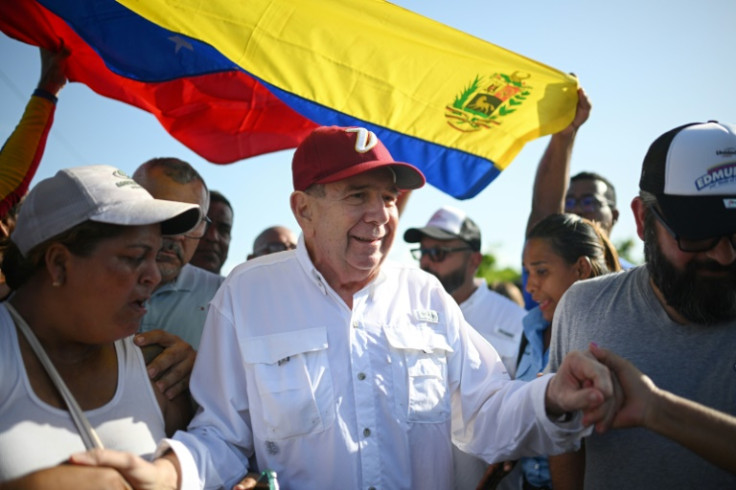Venezuelan Opposition Candidate Says Letter Conceding Election Was Coerced

Venezuela's opposition candidate Edmundo Gonzalez Urrutia said Wednesday he had been coerced into signing a letter distributed by Venezuelan authorities in which he supposedly conceded election defeat to strongman President Nicolas Maduro.
In the letter, dated September 7 and addressed to parliamentary leader Jorge Rodriguez, Gonzalez Urrutia said "I respect" the regime-aligned CNE electoral council's proclamation of Maduro as the winner of the July 28 vote.
But on Wednesday, the 75-year-old retired diplomat published a message on X from Madrid, where he was given asylum after weeks in hiding in Venezuela, saying he was made to sign the letter in exchange for being allowed to leave.
Maduro aides brought him the letter at the Spanish embassy in Caracas and "I had to either sign it or deal with the consequences."
Gonzalez Urrutia added "there were very tense hours of coercion, blackmail and pressure. At that point I considered I could be of more use free than if I were imprisoned."
The letter, he said, was worthless as it was tainted by "coercion."
Within hours of polls closing, the CNE declared Maduro the victor with 52 percent of votes cast.
The opposition immediately cried foul and dozens of countries refused to recognize Maduro's claim to a third six-year term unless the CNE published a detailed vote breakdown, which it has not.
The United States has said there was "overwhelming evidence" that Gonzalez Urrutia had won.
The opposition presented its own figures based on polling station-level counts which it says proves Gonzalez Urrutia won by a landslide.
Gonzalez Urrutia vowed on Wednesday that "as the president elected by millions and millions of Venezuelans who voted for change, democracy and peace, I will not be silenced."
He left for Spain under the cloud of an arrest warrant condemned by the international community for "serious crimes" related to his insistence that Maduro had stolen the vote.
Gonzalez Urrutia had ignored three successive summonses to appear before prosecutors investigating him for alleged crimes including "usurpation" of public functions, "forgery" of a public document, incitement to disobedience and sabotage.
The charges stem from the opposition's publication of voting results, which the government says only authorized institutions have the right to do.
The CNE has said it cannot publish the voting records as hackers had corrupted the data, though observers have said there was no evidence of such interference.
Gonzalez Urrutia replaced opposition leader Maria Corina Machado on the ballot at the last minute after she was barred from running by institutions loyal to the Maduro regime.
She, too, has been mostly in hiding since the vote, except for appearing at a handful of organized demonstrations.
Maduro has said both Gonzalez Urrutia and Machado belong "behind bars," blaming them for the deaths of 25 civilians and two soldiers in protests that broke out spontaneously after his alleged victory was announced.
Nearly 200 people were injured and more than 2,400 arrested.
Maduro has managed to cling to power despite sanctions stepped up after his 2018 reelection, also dismissed as a sham by dozens of countries.

© Copyright AFP 2024. All rights reserved.





















